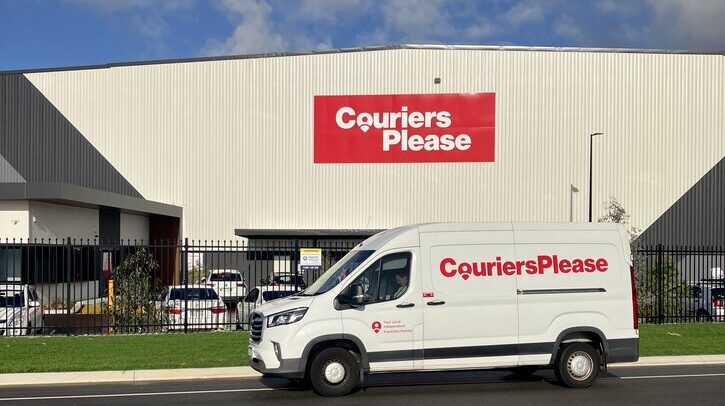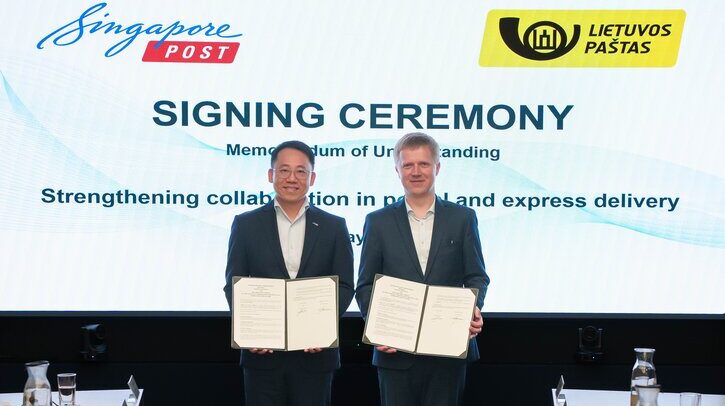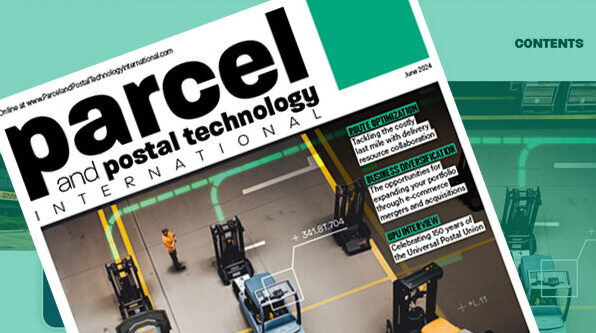The opportunities inherent in e-commerce logistics are proving increasingly attractive for posts looking to diversify their businesses, with merger and acquisition (M&A) activity offering the chance to access new markets, enter new geographies and expand capabilities by using existing networks as the traditional mail market continues to decline.
Matthias Hanke, a partner at consulting firm Roland Berger, believes the synergies are obvious. “E-commerce last-mile delivery is very similar to the postal and parcel business of legacy postal companies,” he explains. “It is a network business and it requires a country-wide distribution network that can easily be provided by postal companies in the domestic country. At the same time, letter volumes of postal companies are shrinking – thus profits decline.”
Eng Keat Lee, head of strategy, communications and property at SingPost, acknowledges that this has been the driving force for M&A activity for his business and the wider market. “It’s absolutely critical for a postal company to think about e-commerce because postmen are already carrying letters to households daily so it’s a matter of designing the right capacity for them,” he says.
“With that same transportation and route that they cover, it’s more efficient to add on an e-commerce package because we are going to have to run that service anyway. So most post companies, if they are really focused on the delivery and logistics aspect of the business, will be building up an e-commerce business alongside.”
E-commerce focus
According to Lee, e-commerce logistics is something that SingPost has identified as a core business. “By serving e-commerce we get in touch with evolving consumer demands, we stay current and sensitive to needs, it diversifies our revenue streams, and we are able to extend our logistics service,” he explains.
SingPost has owned CouriersPlease for around 10 years. Furthermore, over the last four years it has been increasing its share in Australian logistics company FMH Group – from 28% in December 2020 to 51% in 2021 and 88% in 2022 – as it looks to capture the Australian market. In December 2023 it completed the acquisition of the remaining shares to take full ownership of the business.
In March, FMH Group announced the completion of the acquisition of Border Express, first revealed last November, which will be merged with CouriersPlease to strengthen SingPost’s presence in Australia.
bpostgroup is another M&A-hungry company driven by the need to diversify into other markets as a result of declining mail volumes. Last summer it increased its share of Netherlands-based e-fulfillment specialist Active Ants from 75% to 100%, expanding on a strategic partnership originally signed in 2018.
In April, bpost announced an agreement to acquire 100% of third-party e-commerce logistics provider Staci in a €1.3bn (US$1.4bn) deal. bpostgroup had previously invested in the US with the purchase of Radial, and Staci will be integrated within the Active Ants and Radial subsidiaries, according to Philippe Dartienne, bpostgroup’s CFO.
“We looked at our portfolio and we considered that it would be useful to reinforce ourselves with a company that would be more geared toward Europe as a territory but also offering different kinds of services, more B2B than B2C and with a well-balanced portfolio of customers,” he says of the Staci deal.

A considered approach to M&A
Although posts are increasingly realizing the value of M&A to expand their businesses and reduce their reliance on their traditional markets, the success of such deals obviously relies on best fit and careful integration.
At SingPost, this is always top of the agenda when looking for deals. The FMH staggered purchase is indicative of the way the company works on M&As. Lee explains, “We wanted to make sure that the alignment with the [FMH] management was there, that synergies could be realized and that the company was performing up to the level we were looking at.
“At the end of 2020, it was a relatively new relationship, so we needed the time to get to know the company really well. We used the performance of the company over time to more confidently step into gaining that larger proportion and ultimately acquiring the company,” he continues.
When it came to Border Express, however, SingPost was able to move faster since FMH and Border Express already had an established relationship which meant each party had an understanding of how they both worked.
Lee says SingPost has “a very careful, deliberate approach” to M&A. “We want to be asset light so we’re careful in the kinds of businesses we acquire,” he adds. He believes it is vital that each party takes time to understand the other’s business model. “We feel very strongly that the approach for M&A should be one whereby we partner first and get a strong and deep understanding of operational performance and get comfortable enough with their management and their ops teams to see how well we work together. It’s about building mutual trust and confidence. M&As fail when companies don’t get the necessary understanding and processes right,” he advises.
The value of partnerships
The partnership-first approach is now preferred by many. As it expands its capabilities, SingPost has signed several memorandums of understanding with other businesses in recent years, the most recent of which have been agreements with Lithuania Post and a strategic cooperation agreement with Kazakhstan’s national postal operator QazPost in May 2024.
This approach is particularly vital for acquisition targets, according to Lee. “Eventually we see ourselves using partnerships to grow revenues and profits a lot more significantly,” he explains. “Through partnerships we form working relationships, we share revenue and profits, we understand each other’s performance, the management team gets to know each other and we get a lot more comfortable before we ever think even about a potential M&A opportunity.”
Partnerships also allow such companies to make the most of local expertise, he points out. “In places like South Africa or Brazil, customs clearance, for example, is very complex so that’s when we will partner with a company that has a proven track record and then think about how we can grow that partnership relationship along the way.”

Taking time on integration
Choosing the right target in the first place is obviously key to the success of an M&A, especially given the execution risk and integration challenges, as well as issues around regulatory compliance and governance. “These are all aspects that we have to pay attention to,” explains SingPost’s Lee. “It’s about planning. There’s a lot of legwork that needs to take place in terms of formulating the right teams and bringing together the right expertise. Then, the strategy is to evaluate the opportunity and then undertake the acquisition.”
At bpostgroup, Dartienne believes that a successful M&A relies on clarity in the first instance. “We started by having a very clear view of our strategy, where we want
to expand, and then looking at what is available on the market,” he reports. “So when Staci came on the market it was a no-brainer for us because it fitted our strategy perfectly and ticked boxes where we had gaps.”
An effective due diligence process is also vital. “You look at the assets and you try and understand how they work,” Dartienne continues. “You assess potential synergies, but it starts with making sure that the target you’re bidding on is in line with your strategy. We had a very clear strategy to find new ways of being present within the entire value chain and then the targets became available.”
Increased activity
The bpostgroup and SingPost deals are just the tip of the iceberg in a wider market of activity. Oliver Hemming, a partner at Monitor Deloitte, believes there will be many more deals to come as posts continue to embrace e-commerce logistics operations. He says this will be driven by companies aiming to deliver the final mile more efficiently and at a lower cost, and posts looking to make investments in the types of companies and startups that were previously too expensive due to the final-mile delivery boom during the pandemic.
“That drove volumes up but that plateaued and peaked, and you are effectively left with a set of startup competitors who are now short of capital, who have got a differentiated proposition in a competitive market and are doing things differently,” he explains.
“They potentially are very attractive players to the large operators because they don’t have their legacy, they are focused in urban areas, they’ve got differentiated brands, they’re short of capital and there’s M&A activity,” he adds.
As well as traditional delivery, Hemming believes there will be more activity around the locker market, especially as capital constraints are hampering expansion plans. “The capital funding environment for startups has totally changed in the last 24 months, so we’ve got a series of these out-of-home locker providers who could potentially be acquisition targets,” he continues.

A shortage of capital
According to Hemming, this lack of capital is the result of a combination of factors, including market maturity and conditions and the drop in volumes post-pandemic. “Startups are having a really hard time, so looking forward we will see a lot of startup organizations not being able to recapitalize – unless they are really scaling – and therefore [bigger] players taking advantage.”
These conditions also mean there are now opportunities where such companies were previously too expensive to target. “All of the operators in Europe took a really hard look at, ‘Do we need to invest in these organizations?’ in the first place,” Hemming continues. “Many of them did [invest] on the side but not really materially and now they’re looking at those same players again, saying, ‘Well, their business plans haven’t really landed, capital’s now more expensive and not as available as it was. Do we want that capability, and can we take advantage of it?’”
Certainly, looking to the future it seems we will see posts doing just that.
The sustainability angle
The issue of sustainability is another key driver for M&A activity since many of the startups are by their nature more focused on this in last-mile operations. “It’s definitely on people’s minds,” says Deloitte’s Oliver Hemming.
bpostgroup’s Philippe Dartienne believes sustainability is a key factor in decisions for his company. “When we look at an acquisition, and particularly a sizeable one, we need to make sure that it goes in the same direction as our roadmap for sustainability,” he explains.
SingPost’s Eng Keat Lee agrees: “If the partner that we have doesn’t have the same focus, then it’s going to be a bit more of a challenge.”
The growth of fulfillment
Deloitte’s Oliver Hemming believes there will be activity in the fulfillment market too, as postal operators look at consolidation models and increasing the variety of their offerings. “A lot of posts are thinking hard about fulfillment as a growth engine,” he says.
Jens Stratmanns, director at Roland Berger, agrees, saying that fulfillment allows postal organizations to gain more revenue per parcel that gets sent through their sorting units. “Having fulfillment capacities also allows them to test out different automation technologies, gather data on trends and potentially leverage additional digital business models,” he explains.
“The latter is particularly true when understanding that postal incumbents are typically large organizations with legacy IT systems and a rather risk-averse mindset as well as large workforces typically with tariff-based contracts.
“The oftentimes much smaller targets may already have established more automated sorting systems and leaner and more efficient track-and-trace capabilities, and be experimenting with more value-oriented pricing schemes.”
This article was originally published in the June 2024 issue of Parcel and Postal Technology International.



